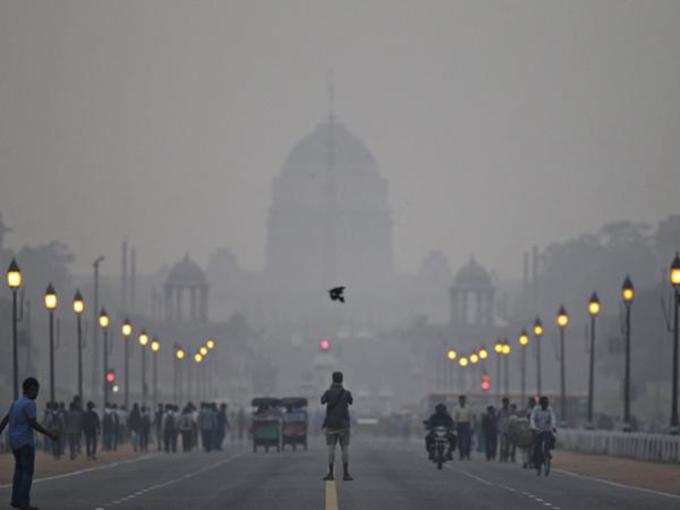
Amidst all the debate about proposals to restrict the use of personal vehicles and the closure of power plants in the city where an estimated 80,000 trucks, many of them overloaded, poorly maintained and heavily polluting pass through every night, there’s some surprise for the citizens.
The capital has seen a lowering of particulate matter, both PM 2.5 and PM 10, in recent days, Gufran Beig, director of the System of Air Quality and Weather Forecasting and Research (
"The Delhi levels of PM2.5 settled at 129 microgram /m3 which is--although still in 'very poor' category--significantly very low in number for such kind of weather conditions," Beig said. "At the same time, during last year (2014), the level of PM2.5 for Delhi was 196 microgram /m3, with minimum temperatures in the same range but maximum temperature much higher (at 24 degrees Celsius) as against 16 degrees Celsius this year."
Despite the colder weather, the numbers are better, the agency said.
"Colder temperatures normally tend to increase PM levels if winds are calm. In Delhi, (from) December 10 onwards, temperature has been falling, which elevates the PM levels under favourable conditions but contrastingly, steady fall in the concentration of PM10 and PM2.5 has been recorded," the statement said.
The decline in PM 2.5 and PM 10 particles in the past few days can be attributed to awareness among people, which could have led to less burning of trash and a decline in vehicular pollution, it said, adding that dust particles don't contribute to PM 2.5 pollution.
It's too early to make any firm conclusions, but "local emission levels have indeed declined," Beig said.
(Image credits: indiatimes)